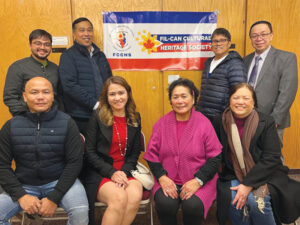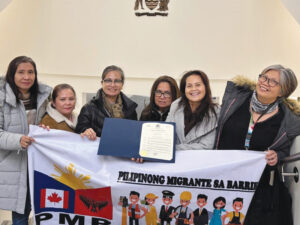International Women’s Day, originally called International Working Women’s Day, seems to have become more and more as just another event to do the obligatory offering of flowers or chocolates or the restaurant dinner to the women in our lives. The political character of this Day has been somewhat diminished because its celebration has been appropriated by commercial and other self-serving interests that deliberately ignore its radical origins.
International Working Women’s Day emerged from the many mass actions of the labour movement, from the militant actions of women workers worldwide starting in the early 1900s. This Day is rooted in the working class movement and in the anti-capitalist struggle, as witnessed by the 1908 strike of women garment workers, many of them immigrant women, under the banner of the International Ladies Garment Workers Union. It is also reflected in the tragedy of 1911 when over a hundred women workers were senselessly killed in the Triangle Shirtwaist Factory fire in New York, an example of the dangerous working conditions for workers. In 1917, Russian women demonstrated in Saint Petersburg and demanded Bread and Peace, calling for an end to World War I, to czarism and to food shortages. In Winnipeg, hundreds of women workers closed ranks with the other workers in the historic and influential 1919 Winnipeg General Strike. Let us not forget that here In Canada, it was not too long ago, that Canadian women were declared to be “persons” in a Constitutional ruling in 1927, and as “persons” they had the right to be appointed to the Canadian Senate!
The continuing struggle of women worldwide is testament to the fact that women have not stood idly on the sidelines, whether they worked in the homes, factories, farms, schools, etc. Women today stand on the shoulders of their sisters who throughout history took their rightful place in the resistance, in the midst of struggles to get their rights as human beings, as women, as workers. It is no surprise that it took women to celebrate their gains and support their sisters by creating their own Working Women’s Day. While the Women’s Day was celebrated by many countries, and at different dates, since the early 1900s, it was only after the victory of the Great October Revolution in 1917, after the Soviet Union declared March 8 as International Working Women’s Day that women in many countries celebrated their Day all together all across the globe.
In the Philippines, the first Women’s Day was celebrated in March 8,1934 during the American colonial period by the progressive Katipunan ng mga Anakpawis and then in 1971 under the banner of MAKIBAKA, a militant women’s organization which was declared illegal when Marcos declared martial law a year after in 1972. MAKIBAKA, a member of the National Democratic Front has since remained an underground group. In 1984, International Women’s Day was celebrated again, a few days after the broad women’s alliance called GABRIELA was formed. The General Assembly Binding Women for Reforms, Integrity, Equality, Leadership and Action (or GABRIELA for short) is the most outstanding patriotic and progressive women’s formation in the Philippines, linking its women’s movement to the struggle for national liberation and democracy.
In reclaiming the spirit of the International Working Women’s Day, women, with their families, friends and organizations, gathered together at the Calvary Baptist Church last March 11, for an evening of cultural performances, speakers, sharing and food. The evening highlighted the resistance of indigenous women, working class women and gender oppressed peoples against state-sanctioned violence. It also celebrated the militant resistance of Indigenous and other working class women under conditions brought about by imperialism and its consequent evils.
Jenn Allen and Martha Roberts from Grassroots Women shared the history of state-sponsored violence against indigenous women, where policing has subjected indigenous women to “over-policing and under protection” resulting in thousands of missing and murdered women. Ingrid from Ayotzi68 talked about the many missing and murdered indigenous women and girls in Guatemala and Mexico and ended her sharing with poetry. Pia Rivera of GABRIELA Seattle linked its women’s movement to the Filipino liberation movement which was followed by the Pinay Choir. KASAMA cultural group of Migrante BC performed its interpretation of the song Babaylan in reference to the Filipino women prophets, warriors and visionaries.
Reclaiming International Working Women’s Day is to remember its history, its roots and to continue to celebrate the continuing struggles of women who continue to resist. Happy International Working Women’s Day!








